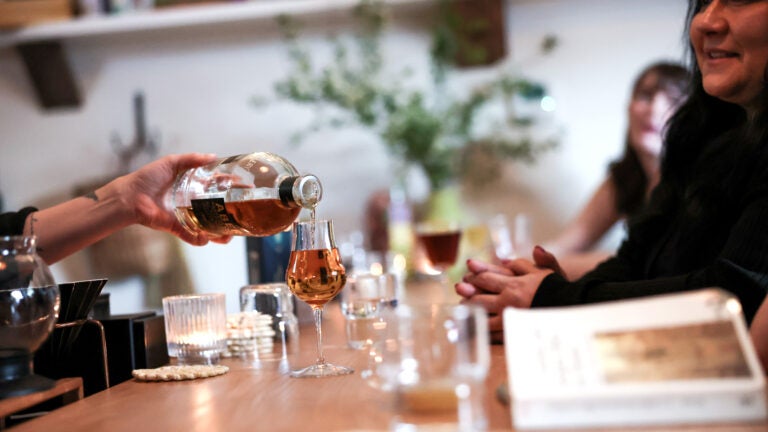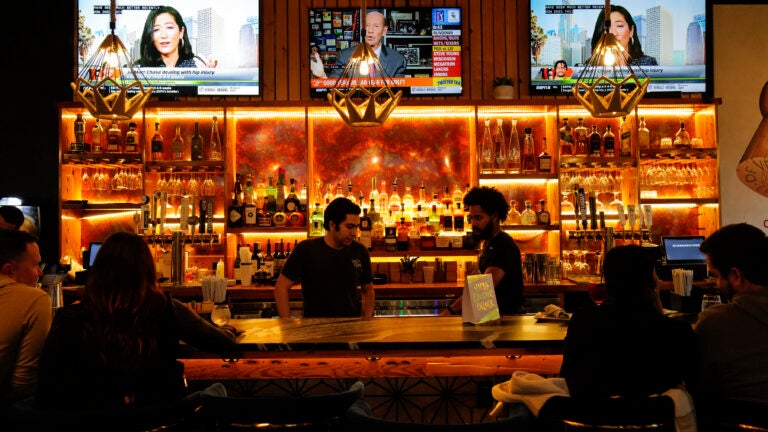Food News
Officials revealed this week some details on how the process would look when handing out these coveted licenses.
City officials this week in a webinar and City Council hearing offered some details on the process the Boston Licensing Board would use to dole out the coveted 225 new liquor licenses the state approved weeks ago.
The big announcement was that there is already a deadline quickly coming up on Dec. 6. This deadline is likely the first of several, since the zip code-restricted licenses were approved for handing out over the course of a three-year period.
Officials urged restaurants seeking both malt and wine licenses and all-alcohol licenses apply now if they want to make that first cut.
Licenses will be determined by ‘public need’
At a meeting sometime after Dec. 6, officials are trying something new when it comes to settling who gets what, and who gets deferred. They will not dole out the licenses on a first-come, first-serve basis, as they did the last time a bill like this was passed in 2014. Instead, Licensing Board chairperson Kathleen Joyce said they will try to determine a “public need” with each applicant.
“We want to make sure these licenses are put to the best use,” Joyce said.
The Boston Globe reported that the Licensing Board hopes to avoid what happened in 2014, in which those liquor licenses were given to those who got applications in first — often white restaurateurs or owners with connections and liquor license lawyers to help them.
“Our goal is to make sure that every single person has an opportunity, not just the folks who have been in the know for a long time or who have access to attorneys that cost a lot,” said Segun Idowu, Boston’s chief of economic opportunity and inclusion.
Joyce explained that “public need” is already a factor they use when approving liquor licenses. The board takes into consideration the number of liquor licenses in a neighborhood where the applicant is interested, comparing the concept to other restaurants in the area, takeout and delivery impacts to the neighborhood, public support of the restaurant, and the personal and professional reputation of the applicant.
Unrestricted vs. zip-code restricted
The Licensing Board plans to use their public need determination for all the licenses approved, but it won’t come without complications when it comes to who gets a zip code-restricted license, and who gets one of the 12 new unrestricted licenses.
The difference between these licenses is in the price tag. All licenses cost an annual city fee. A restricted license must remain in the zip code it’s designated for, but it also must be returned to the city when the recipient is no longer using it for their business.
The unrestricted licenses are like the majority of liquor licenses in Boston, in that they can sell on the private market for around $600,000 from business to business, thanks to an old state law that clamps down on the number of liquor licenses floating around in Boston.
“The persons who receive those receive tremendous gifts,” said a North End resident during public testimony. “I wonder whether the council would want to think about adding some sort of guardrails to make sure these extremely valuable licenses don’t go in the wrong direction.”
Globe reported that those unrestricted licenses will likely see more attention from applications, but given the city’s set limits on licenses, the city will still see demand for the restricted licenses from operators who have waited years to serve alcohol.
‘We’re going to be oversubscribed’
Even before Gov. Maura Healey gave the major bill her signature for passage, the Licensing Board began seeing applications in anticipation of the new licenses.
Joyce said many have come in for eateries in Jamaica Plain, Brighton, Hyde Park, and the North End, and she expects an inundation of applications from East Boston businesses. The Licensing Board has also received 16 applications since Sept. 1.
“We definitely believe we’re going to be oversubscribed,” Idowu said. “Which I think is a good thing because it’s going to demonstrate to the legislature that there is a big need in Boston for a lot more of these licenses.”
Broken down, the 225 licenses will go toward:
- 13 zip codes in Roxbury, Dorchester, Mattapan, East Boston, Roslindale, West Roxbury, Hyde Park, Charlestown, Jamaica Plain, and the South End will get access to five liquor licenses a year, three all-alcohol and two beer and wine licenses, over the course of three years.
- The Oak Square section of Brighton will receive three non-transferable liquor licenses.
- Nonprofits, theaters, and outdoor spaces can get access to 15 licenses.
- 12 licenses will be unrestricted.
What’s next for operators
Applications can only be completed online, and business owners need to have a location already in mind when applying — Joyce noted owners do not need an official lease ready, but could upload a letter of intent from a landlord as proof of a place for their business.
If applicants can’t meet this Dec. 6 batch deadline, there will be two more, one as soon as spring 2025.
The Licensing Board is also holding webinar sessions, as they did Monday, to share information about the process with potential applicants. The department also has open office hours bi-weekly, and a computer to use for filling out the application if that’s something an applicant needs.
Sign up for The Dish
Stay up to date on the latest food and drink news from Boston.com.


